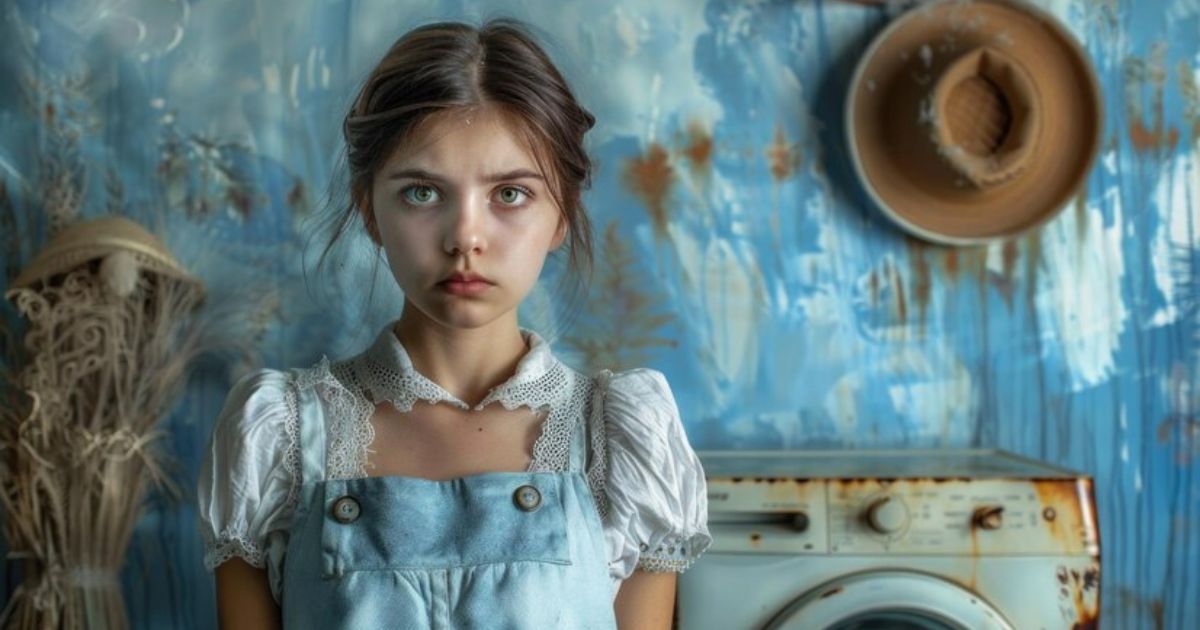The term “grubby girl” is one that may evoke various interpretations depending on the context in which it is used. While it might sound like a casual label, the phrase carries cultural undertones that go beyond its literal meaning. Understanding its implications, history, and potential usage is essential for appreciating its role in language and society. This article delves into the meaning of “grubby girl,” its historical context, cultural implications, and how it is perceived today.
What Does “Grubby Girl” Mean
At its core, the term “grubby girl” is a descriptive phrase that combines “grubby,” meaning dirty or unkempt, with “girl.” It generally refers to someone who appears to be messy, covered in dirt, or unclean in some way. The description is usually applied in a lighthearted or affectionate manner rather than with malice, although context plays a significant role in shaping its tone.
The Evolution of the Term “Grubby”
“Grubby” itself has an interesting etymology, originating from the word “grub,” which means to dig or root around in the dirt. Over time, it evolved into a slang term referring to something or someone that appears unclean or disheveled. This transition reflects how language evolves based on cultural changes, with certain words gaining new meanings through widespread usage.
Why Do People Use the Term “Grubby Girl”
The term is often used in casual settings, particularly to describe young children who have been playing outside and gotten dirty. In such contexts, “grubby girl” is not meant to be insulting; instead, it reflects an acceptance of the carefree and sometimes messy nature of outdoor play. In other scenarios, it can also describe individuals with a relaxed or unpolished appearance, suggesting a lack of concern for keeping up a pristine image.
The Social Implications of Being Called a “Grubby Girl”
While the term is not inherently negative, the context in which it is used can influence its meaning. For example, when used by a parent or friend, it might come across as playful or affectionate. However, if used in a critical tone, it could imply disapproval or judgment about someone’s hygiene or lifestyle choices. The way it is perceived can depend significantly on who is using the term and in what situation.
Cultural Perceptions of Messiness and Cleanliness
The concept of cleanliness is heavily influenced by cultural norms, and different societies place varying degrees of importance on maintaining a neat appearance. In some cultures, an unkempt look may be considered a sign of freedom or authenticity, while in others, it might be seen as a lack of self-respect. Understanding these cultural nuances helps in grasping why someone might be called a “grubby girl” and what that label implies within different contexts.
Gender Stereotypes and the “Grubby Girl” Label
The term also brings up discussions around gender expectations. For a long time, societal norms have placed higher expectations on girls and women to maintain a polished appearance. The term “grubby girl” can, therefore, be seen as challenging these expectations by highlighting a more relaxed or naturalistic approach to appearance. It can be empowering for some, while others may view it as reinforcing stereotypes about cleanliness and femininity.
When “Grubby Girl” Becomes a Term of Endearment
Interestingly, the term can often be used as a term of endearment, especially by parents or close friends. For instance, a child coming in from an afternoon of outdoor play might be affectionately called a “grubby girl” by her mother, who appreciates her adventurous spirit and doesn’t mind a bit of dirt. In these cases, the term conveys warmth and familiarity, rather than criticism.
The Role of Outdoor Activities in Defining “Grubbiness”
Children who frequently engage in outdoor activities such as hiking, camping, or gardening are more likely to be referred to as “grubby.” The dirt and grime that come from being active outdoors are often seen as a natural part of having fun. This association can make the term “grubby girl” seem positive in contexts where physical activity and a connection to nature are valued.
How “Grubby Girl” Relates to Modern Fashion Trends
Fashion trends often flirt with the idea of looking “effortlessly messy” or “undone.” For some, the “grubby” look can be a deliberate style choice, with celebrities and influencers embracing disheveled hair, minimal makeup, and unpolished outfits. This shift has somewhat normalized the idea of looking “grubby” as a form of self-expression rather than as a sign of neglect or lack of hygiene.
Comparing “Grubby Girl” with Similar Descriptors
Similar terms such as “tomboy,” “rugged,” or “carefree” also convey a relaxed attitude toward appearance but may have slightly different connotations. For example, “tomboy” often implies a girl who enjoys activities traditionally associated with boys, while “rugged” suggests someone who is tough and outdoor-oriented. The term “grubby girl” is unique in that it specifically emphasizes a certain level of messiness.
How to Embrace Being a “Grubby Girl”
For those who identify with the term or don’t mind being called a “grubby girl,” there are ways to embrace it positively. Owning the term can involve adopting a carefree lifestyle, prioritizing experiences over appearances, and challenging societal expectations about femininity. It’s about finding confidence in authenticity rather than striving for a polished look all the time.
Common Situations Where Someone Might Be Called a “Grubby Girl”
Outdoor Play: Children who enjoy activities like playing in the mud, hiking, or gardening.
Camping Trips: Adults or teenagers who spend time camping and are comfortable with getting a little dirty.
Artistic Pursuits: People who engage in art forms that involve mess, such as pottery, painting, or sculpture.
Home Renovation: Those doing hands-on DIY projects or home repairs often get “grubby” in the process.
Why It’s Important Not to Judge Based on Appearance
Although the term “grubby girl” can be used in jest, it is essential not to judge someone’s character or lifestyle based solely on their appearance. People often make assumptions about others based on how they look, but these judgments are rarely accurate. Understanding the broader context of why someone might appear “grubby” can foster a more compassionate and open-minded attitude.
How “Grubby Girl” Can Be Empowering
For some, embracing the label “grubby girl” is a form of empowerment. It allows them to reject unrealistic beauty standards and express themselves authentically. Rather than conforming to societal expectations, they can focus on what truly matters to them, such as enjoying nature, pursuing hobbies, or simply being themselves without the need for constant grooming.
Conclusion
The term “grubby girl” might appear straightforward at first, but it encompasses a range of cultural, social, and personal nuances. Whether used as a term of endearment, a playful label, or a description of someone’s lifestyle, the phrase highlights the complex relationships people have with cleanliness, appearance, and societal expectations. It serves as a reminder that sometimes, a little dirt is just a sign of a life well-lived.
FAQs
Is “grubby girl” considered offensive?
Not necessarily. The term’s tone depends on the context in which it is used. It can be affectionate or playful, but if used negatively, it might come across as judgmental.
Can adults be called “grubby girls”?
Yes, adults can also be described as “grubby girls,” especially if they embrace a relaxed lifestyle that doesn’t prioritize a pristine appearance.
Is there a male equivalent to “grubby girl”?
Terms like “grubby boy” or “rugged guy” might serve as male equivalents, though they don’t carry exactly the same connotations.
Does being “grubby” mean someone is unhygienic?
Not necessarily. “Grubby” typically refers to someone appearing messy or dirty from activities, rather than implying poor hygiene.
Why do some people embrace being a “grubby girl”?
Embracing the term can be empowering for those who reject traditional beauty standards and prefer a more authentic, carefree lifestyle.











